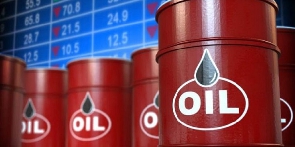Nigeria is set to receive $1.05 billion from a syndicated loan backed by oil by the end of May to help revive its economy and boost the supply of hard currency on the local foreign-exchange market.
The funds form part of a $3.3 billion prepayment facility arranged by African Export-Import Bank that will be repaid using crude cargoes from Nigeria’s state-owned energy firm National Petroleum Co. Two-thirds of the largest syndicated loan raised by Africa’s biggest oil producer was disbursed in January.
“The verification of the crude availability has happened so we expect in the next month to finalize the release of the balance,” said Denys Denya, senior executive vice president for finance, administration and banking at Afreximbank. “Based on future production, you get the money now.”
The facility has participation from commercial banks and oil traders, most of which have already secured internal approvals, he said, without giving further details.
Nigeria has battled years of acute foreign-exchange scarcity arising from low crude production and a lack of economic diversification. Since coming to office in May, President Bola Tinubu has worked to address the shortages with a series of reforms aimed at attracting foreign investors and boosting economic growth. They include the central bank clearing a $7 billion backlog of unmet foreign-exchange obligations to industries and foreigners, allowing the naira to trade more freely and increasing interest rates steeply.
Uganda Pipelines
The Cairo-based lender specializing in financing trade across Africa is also finalizing a $200 million funding plan that includes guarantees, and letters of credit to support the East African Crude Oil Pipeline linking Uganda’s oil fields to Tanzania’s Port of Tanga, Denya said.
The funds will be a boost for the project estimated to cost $5 billion that has received backlash from climate activists who have successfully persuaded lenders and insurers to steer clear of the pipeline.
The construction of the 1,443-kilometer (897-mile) pipeline “will improve intra-regional trade which is part of our mandate, so it ticks all the boxes for us — there’s really no reason for us not to be supporting this.” Denya said.
The investments will add to plans by Afreximbank to increase loans and advances by 53% to as much as $40 billion by year-end, he said.
Business News of Monday, 8 April 2024
Source: bloomberg.com

















